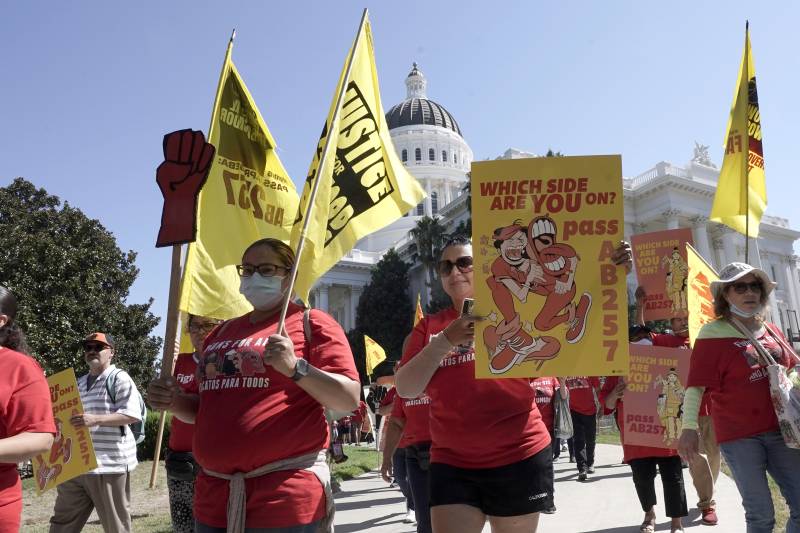Legislation seeking to provide financial relief for wage theft victims who are still waiting to get paid was introduced to the San Francisco Board of Supervisors on Tuesday.
The proposed ordinance, introduced by Supervisor Hillary Ronen, would create a Worker Justice Fund for people who have won cases before city labor enforcement officials. The fund would offer restitution for low-income workers whose employers closed down their business, declared bankruptcy or fled before paying what they owe.
According to Ronen, the fund would start with about $500,000 to $700,000, including fines paid to the Office of Labor Standards Enforcement by businesses that broke the city’s minimum wage, paid sick leave and other worker protection laws.


